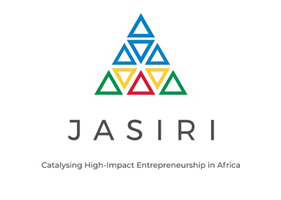
Addis Fortune | Nov 04,2020
Feb 10 , 2024
By Eden Sahle
From economic hardships to how things are handled in a bureaucratic environment, conversations began flowing at a recent gathering in my home. It brought to light a particularly troubling aspect of life and the unscrupulous means by which some residents secure uninterrupted access to essential utilities.
The discussion unfolded as my guests shared their frustrations about the pervasive power cuts that affect Addis Abeba. Amidst the shared grievances, a startling revelation emerged from a couple of guests who claimed to have found a way to bypass the perennial issues of power cuts and water shortages.
At first, we all thought how lucky they were to live in a location which does not have a problem. It was beyond luck. According to them, certain communities on the city's outskirts had struck clandestine deals with civil servants responsible for utility supply. A collective monthly payment ensured uninterrupted access to power and water, effectively bypassing the rationing that frustrated many.
The guests disclosed that, upon renting a luxurious villa in a sought-after neighbourhood, they were informed of this practice. Community representatives approached them, proposing a monthly cash contribution to service providers in exchange for a guaranteed utility supply. While initially shocked, the couple resisted the pressure, citing financial constraints. Yet, despite their refusal to participate, they inadvertently benefited from the scheme, raising eyebrows among their neighbours who had succumbed to the collective payment.
The revelation resonated with the broader awareness of corruption in Ethiopia. The term "yeshay," translating to "tip for tea" has become ingrained in societal norms, legitimising bribery. Declarations and slogans condemning corruption at public service bureaus have done little to deter those tasked with serving the public from demanding illicit payments.
Ethiopia ranked 98th out of 180 countries, according to the 2023 Corruption Perceptions Index reported by Transparency International. Economic constraints, coupled with low wages for civil servants, have created an environment where bribery not only thrives but is expected.
The country's legal framework against corruption appears insufficient, failing to empower citizens to demand their rights or instil moral obligations.
Corruption is no longer behind the curtain but debatable on the extent of its effect. It has significantly affected society acting as an economic brake, with many losing their trust in public institutions through the process.
Despite years of initiatives aimed at raising awareness, bribery remains entrenched in public service, hindering effective governance and obstructing foreign investments. Addressing it requires more than running campaigns and attitudinal shifts; it demands systemic change. Apart from independent organisations emphasising the need for strict laws enforcing transparency and ethical conduct, media freedom plays a crucial role in exposing corruption, while preventative efforts must focus on creating transparent systems and promoting good governance.
It is not a concern to be taken lightly. Beyond being a source of economic chaos, it poses a threat to political and social stability, erodes public trust in civil servants, and acts as a deterrent to potential foreign investments. Ethiopia must move beyond superficial measures and embrace a comprehensive approach that addresses the root causes of corruption, creating a society where integrity and ethical conduct prevail.
PUBLISHED ON
Feb 10,2024 [ VOL
24 , NO
1241]

Addis Fortune | Nov 04,2020

Radar | Jun 01,2024

Radar | Dec 17,2022

Editorial | Jun 15,2024

Sunday with Eden | Dec 31,2022

Advertorials | Jul 24,2024

Commentaries | Jan 04,2020

Editorial | Apr 03,2021

Advertorials | Jan 22,2024


Photo Gallery | 172002 Views | May 06,2019

Photo Gallery | 162238 Views | Apr 26,2019

Photo Gallery | 152012 Views | Oct 06,2021

My Opinion | 136337 Views | Aug 14,2021





Dec 22 , 2024 . By TIZITA SHEWAFERAW
Charged with transforming colossal state-owned enterprises into modern and competitiv...

Aug 18 , 2024 . By AKSAH ITALO
Although predictable Yonas Zerihun's job in the ride-hailing service is not immune to...

Jul 28 , 2024 . By TIZITA SHEWAFERAW
Unhabitual, perhaps too many, Samuel Gebreyohannes, 38, used to occasionally enjoy a couple of beers at breakfast. However, he recently swit...

Jul 13 , 2024 . By AKSAH ITALO
Investors who rely on tractors, trucks, and field vehicles for commuting, transporting commodities, and f...

Oct 4 , 2025
Eyob Tekalegn (PhD) had been in the Governor's chair for only weeks when, on Septembe...

Sep 27 , 2025
Four years into an experiment with “shock therapy” in education, the national moo...

Sep 20 , 2025
Getachew Reda's return to the national stage was always going to stir attention. Once...

Sep 13 , 2025
At its launch in Nairobi two years ago, the Africa Climate Summit was billed as the f...

Oct 5 , 2025 . By NAHOM AYELE
In Meqelle, a name long associated with industrial grit and regional pride is undergo...

Oct 5 , 2025 . By BEZAWIT HULUAGER
The federal government is set to roll out a new "motor vehicle circulation tax" in th...

Oct 5 , 2025 . By NAHOM AYELE
The Bank of Abyssinia is wrestling with the loss of a prime plot of land once leased...

Oct 5 , 2025 . By BEZAWIT HULUAGER
The Customs Commission has introduced new tariffs on a wide range of imported goods i...